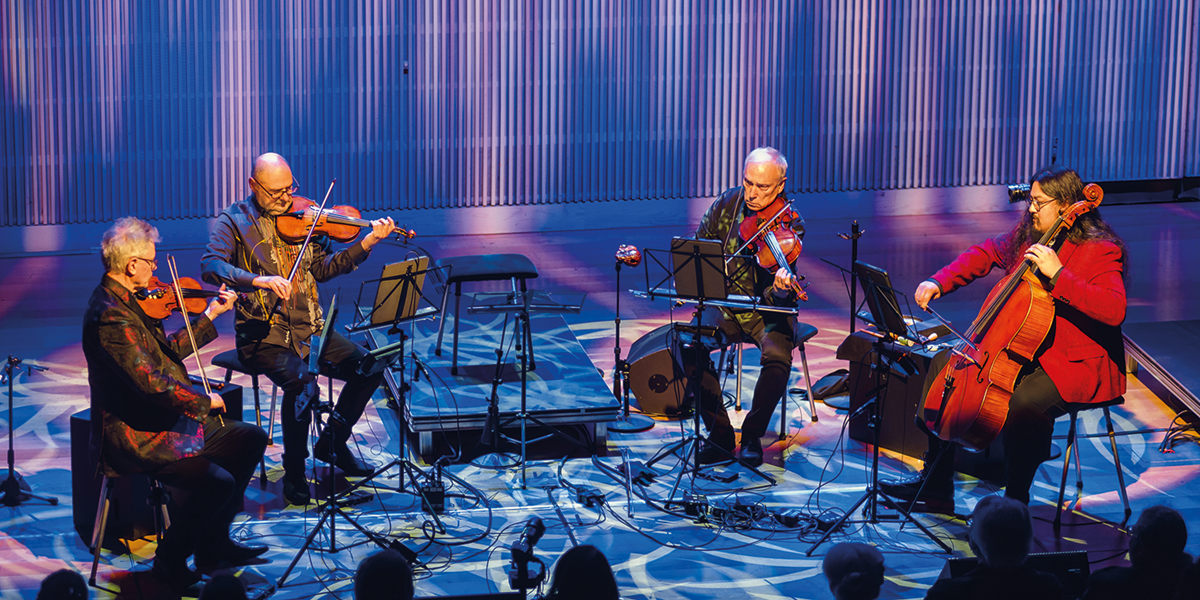Thursday, July 18, 2024
Kronos Quartet: A Beginner's Guide
By Jeff Kaliss
Jeff Kaliss charts the 50-plus years and many global collaborations of the string quartet, who have just said farewell to two of their longest-serving members

Kronos Quartet (photo: Lenny Gonzalez)

Register now to continue reading

Thanks for visiting the Songlines website, your guide to an extraordinary world of music and culture. Sign up for a free account now to enjoy:
- Free access to 2 subscriber-only articles and album reviews every month
- Unlimited access to our news and awards pages
- Our regular email newsletters

